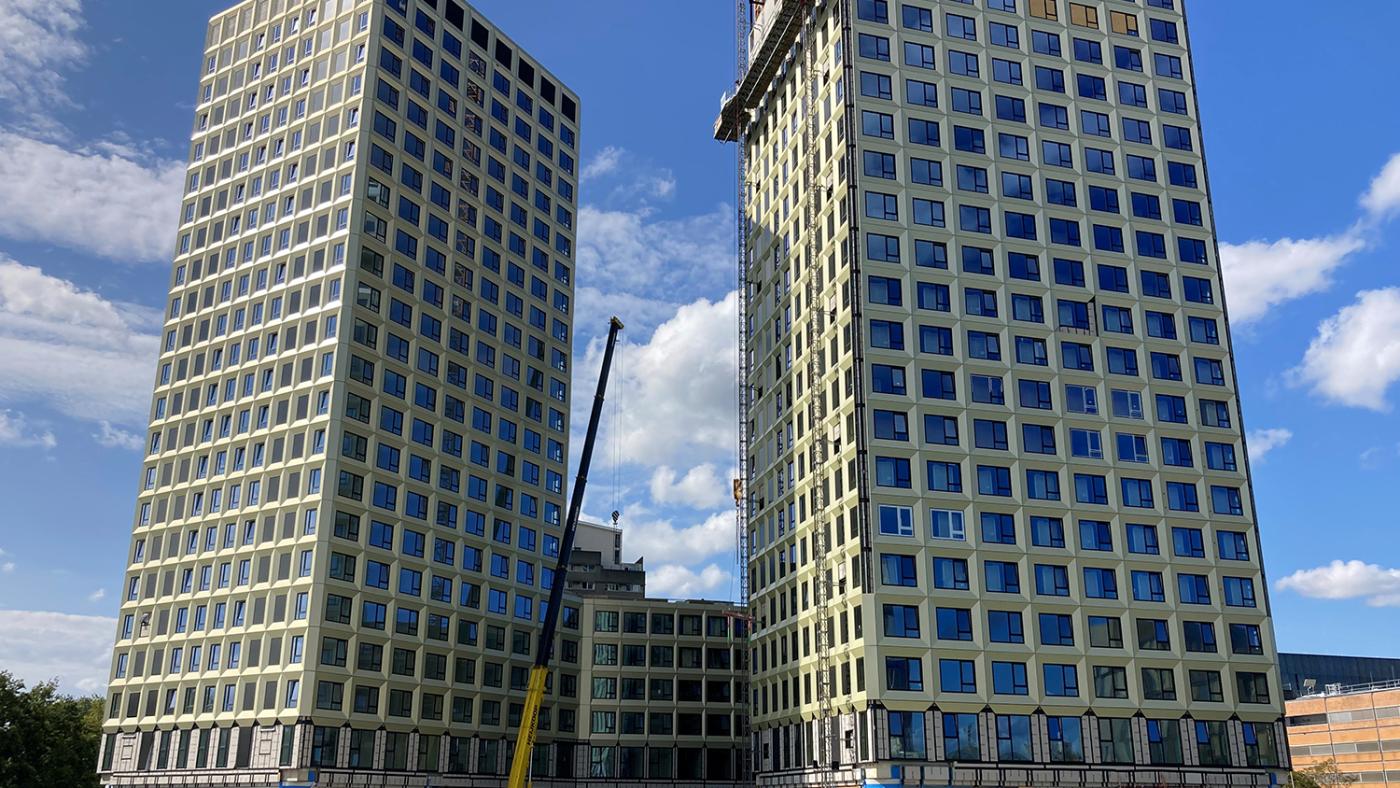Will a new cabinet solve the issue?
'You can't reverse such a room shortage just like that’

It is so hard for students to find a place to live that an increasing number of them have given up moving out of their parents' house altogether, according to a report published last week by Kences, a knowledge centre focused on student housing. Currently, the Netherlands is 21,500 rooms short of meeting demand, and this shortfall is expected to rise.
With parliamentary elections just around the corner, the housing shortage is high on the agenda for many political parties. Tackling the housing crisis is one of the key priorities in almost all election programmes.
Peter Boelhouwer, Professor of Housing Systems at Delft University of Technology, argues that the government is largely to blame for this situation: ‘They've made a real mess of things.’
How so?
'The Dutch government has created too many restrictive rules. At present, people are not allowed to simply let someone move in with them by renting out a room in their house or splitting a property. For example, a student in Nijmegen inherited a house, and she wanted to share that property with two friends, but she couldn't do that because it would constitute three separate households, which the local authority did not permit.
In addition, students renting rooms are not entitled to housing benefits, whereas those living in studios are. I consider that to be another policy mistake on the part of the government. As a result of this mistake, many studios are being built, even though they are more expensive and accommodate fewer students. We have two options: either abolishing the rent allowance for studios, which would put the students living in studios in trouble, or extending the rent allowance to students living in rooms, which would cost money, but I think it's the right way to go.'
If the shortage is so extreme, where do students live?
'We are seeing a slight increase in homelessness, though these are almost never students. Most Dutch students continue to live with their parents or go couch surfing with their friends. Many people rent illegally, including students.'
Can't we just build more homes?
'The government has imposed too many restrictions for that, too. The current system of objection and appeal procedures sometimes delays construction projects for years. This not only costs a lot of time, but also a lot of money.
‘Many new-build homes also have to be affordable, which has caused many foreign investors to walk away. But Dutch investors have also halved in number. However, new-build homes do not have to be immediately accessible to everyone. By building more expensive homes, people with more money can move on more easily, which also frees up homes at the bottom of the chain.’

Peter Boelhouwer. Photo: courtesy of the professor
Can't the government build housing, just like it builds roads and hospitals?
'The European Union has rules for state aid and government intervention. The government is allowed to invest money in "services of general economic interest”, but there must be very good reasons for doing so, and these must be approved by the EU, which then assesses whether the market really cannot solve the problem by itself. However, the Dutch government has imposed so many restrictive rules that the market cannot function at all.
Meanwhile, more and more private owners are selling their properties because renting is no longer attractive due to all the rules and taxes. The government could buy these homes and rent them out, but that would cost a few billion euros, and that's taxpayers' money that wouldn't be spent on other things. That's a political choice you could make.’
How else can we solve the housing shortage?
'Building new homes takes years, so you can't reverse the shortage just like that. The problems surrounding the existing housing stock are easier to solve. We need to remove restrictions so that it is easier to split homes and rent out rooms.
Allowing more temporary construction could also offer a solution, as such homes are quick and easy to build. However, local residents often protest them because they are afraid of nuisance, especially from young people or migrant workers. Citizens themselves often put a spanner in the works because they prefer not to give anything up.
Universities are not taking enough responsibility for the housing shortage either. They recruit many foreign students without providing them with accommodation. Universities could also invest in student rooms. They are currently under considerable pressure due to the austerity measures imposed on them by the government, so that's complicated, but building rooms does not have to be loss-making.
We may also have to make choices with regard to migration. The student population has grown significantly due to the influx of foreign students. It is difficult to limit this, but perhaps we have to. We simply do not have the facilities.'
What are your expectations for the elections?
'I am cautiously optimistic. Many parties have made the housing shortage a priority. They are also willing to spend more money on it, but whether they will in fact do that remains to be seen.'
Comments
We appreciate relevant and respectful responses. Responding to DUB can be done by logging into the site. You can do so by creating a DUB account or by using your Solis ID. Comments that do not comply with our game rules will be deleted. Please read our response policy before responding.